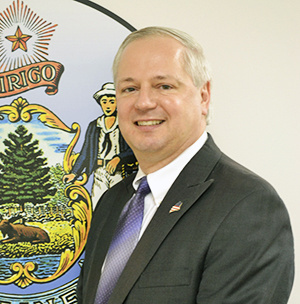As Maine students get ready for summer vacation, the LePage administration is doing its best to convince teens to spend at least some of their precious time off earning a wage.
Officials from the state labor and education departments on Wednesday unveiled a program called YES: Youth Empowerment and the Steps to Success, intended to get more 14- and 15-year-old Mainers into the workforce.
New workers can fill critical labor gaps in the state’s seasonal hospitality industry, and teens can gain valuable workplace experience and exposure to career opportunities, Labor Commissioner John Butera said at a news conference in Augusta Wednesday.
“It is no secret Maine has a significant workforce challenge,” Butera said. “I think it is critical that we look to our youth cohort to provide our future workforce.”
The program consists mainly of a public awareness blitz, including a new website and social media pages with resources and guidance for employers who want to hire young teens. A series of workshops to educate businesses, kids and parents about teen employment is planned next month.
Teen employers also may benefit from a pilot grant program to subsidize the cost of hiring teens.
Employers in the tourism industry can apply to receive up to $400 for each new entrant into the workforce they hire. The program is funded with $50,000 from the Department of Economic and Community Development, Butera said.
Employers complain that Maine’s increasing minimum wage – set to go up to $12 in 2020 – makes it much less appealing to hire young workers. Trade groups and employers have lobbied in recent years for a sub-minimum training wage that would enable them to temporarily pay teen workers as little as $7.25 an hour, the federal minimum wage.
Employers “are hampered by their ability to pay them the minimum wage,” Butera said. “We are trying to help offset some of that cost and give youth work experience.”
Nationally and in Maine, the number of teens in the labor force has declined sharply in the last two decades. In 2000, about 50 percent of 16- to 19-year-olds in Maine were employed, roughly 33,000 workers. By 2014 only 39 percent of the same age group had a job, about 22,000 workers, according to Department of Labor statistics.
Analysts theorize declining teen workforce participation may be due to older workers taking jobs traditionally held by teens or that teens are more likely now to study, volunteer, get an internship or have multiple extra-curricular activities to help pad college applications.
Since entering office in 2011, Republican Gov. Paul LePage has pushed to loosen the state’s child labor laws and make it easier to get young teens into the workforce.
A 2011 law extended the hours teens could work, and legislation passed last year allowed kids to work in previously prohibited positions in bakeries and hotels and do hazardous work with proper training. The law also streamlined the process to get a work permit for 14- and 15-year-olds.
Butera and other officials hope they can leverage those changes to encourage more employers to hire teens. Critics, however, caution against encouraging kids to work at the expense of their education.
Last year, the state got about 4,260 teen work permit applications. It wants to increase that figure by 50 percent by plugging into a labor pool of an estimated 27,000 potential workers, Butera said.
The Department of Labor is partnering with Maine tourism and hospitality trade groups, as well as the Department of Education and Jobs for Maine Graduates. The nonprofit partners with Maine schools to help students as they pursue their education from middle through college and offers support after they enter the workforce.
The timeline to get Maine teens into jobs this summer is tight, Butera admitted. This is just the first step in a “long-term concerted effort to engage people in the workforce,” he said.
A class for employers about hiring teens is scheduled for 9 a.m. till noon Thursday at the Greater Portland Career Center in Portland and another session is slated for the Bangor Career Center on June 12.
Almost two dozen workshops for teens and parents about teen labor laws and job opportunities are scheduled across the state next week.
“We are going to move fast, move quick and get as many kids into the workforce as we can,” Butera said.
Peter McGuire can be contacted at 791-6325 or at:
pmcguire@pressherald.com
Twitter: PeteL_McGuire
Send questions/comments to the editors.



